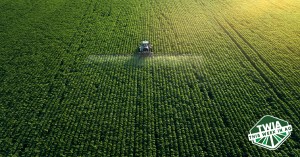On May 1, 2019, Dr. Richard Lamar joined Bio Huma Netics, Inc. (BHN) as Senior Director of Humic Research. He brings a tremendous amount of skills, experience, and knowledge of humic substances to BHN.
Dr. Lamar has a B.S. in Biology from the University of Miami, a M.S. in Forestry from Mississippi State University, and a Ph.D. in Forestry from North Carolina State University, with minors in Chemistry, Plant Physiology, and Soils, respectively. He has many years’ experience as a scientist, and 22 years’ research experience in the biosolids and humic industries, including as a Research Director for the EarthFax Development Corporation. Dr. Lamar has collaborated on more than 50 publications and 3 patents for bioremediation methods and methods for quantitation of humic substances.
BHN Chief Executive Officer Lyndon Smith commented, “We are pleased to have Dr. Lamar leading the Humic Research Team for Bio Huma Netics’product lines. Along with extensive experience in soil bioremediation and pollution treatment technologies, he has in-depth knowledge of soil microbiology and an excellent understanding of humic and fulvic chemistry. In addition, Rich displays the professionalism and integrity that we value at BHN. With his background in agricultural and soil sciences, he will be an invaluable addition to our Research Team.”
The Bio Huma Netics crop nutrition and protection lines include more than 15 humic and fulvic acid products for restoring and enhancing soil fertility, and more than 150 products in the categories of macronutrients, micronutrients, soil fertility, growth managers, organic acids, and crop protection—all based on our proprietary Micro Carbon Technology®nutrient carrier that enables growers to accomplish more with less product.
About Bio Huma Netics, Inc.
Founded in 1973, Bio Huma Netics, Inc., (BHN) is a three-generation family- and employee-owned company that is a global leader in providing sustainable solutions to the world’s environmental challenges for conventional agriculture (HUMA GRO®, MESA VERDE HUMATES®); organic agriculture (FERTILGOLD®ORGANICS); horticulture, turf & ornamentals (HUMA GRO®TURF); and soil & wastewater remediation (PROBIOTIC SOLUTIONS®) all based on its proprietary Micro Carbon Technology®. Learn more at www.bhn.us.
Related Posts

This Week in Ag #83
Grandpa Fred never saw me. Despite the fact I was at his house nearly every day for over two decades. That’s because he was blind. From a farm accident. An anhydrous hose burst and shot the gas in his eyes.

Cherry Blossoms: A Sight to See
Cherry Blossoms: A Sight to See! Konnichiwa! This Week in Ag comes to you this week from Japan. I’m here for my son’s wedding. My new daughter chose this time of year to align with the famous blooming of the cherry blossoms. These Sakura trees provide amazing backdrops for wedding photos. You may have heard about Japan’s cherry blossoms and perhaps seen pictures online or on travel shows. But let me be clear: these do not do the flowers justice. The sights are awe-inspiring. Gardens, parks, temples, river banks and streets lined with Sakura trees provide spectacularly scenic backdrops. Pedals blow in the wind like gentle snowfall. A unique feature of some Sakura trees is their ability to bloom before leaves emerge, which further emphasizes the flowers.

Discover Three Products to Prep Your Soil for Spring Planting
As I begin to write, I’m reminded of an excerpt from Ode to the West Wind — “If winter comes, can spring be far behind?” Well, spring is certainly not far behind, especially for those of us working in the agriculture sector. Winter can be a tricky time for growers, as many of them face

